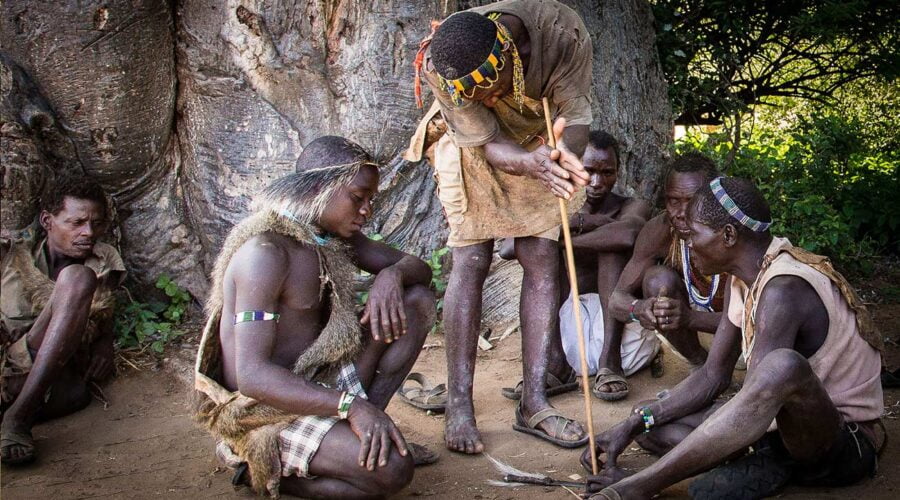The Hadzabe tribe is an indigenous group of people living in northern Tanzania near Lake Eyasi. They are one of the last remaining hunter-gatherer societies in the world, relying on hunting and gathering for their subsistence. The Hadzabe have a rich cultural heritage and have maintained their traditional way of life despite significant external pressure to change.
The Hadzabe have a deep connection to the land and their environment, relying on the plants, animals, and natural resources of their surroundings for survival. They have a unique and complex language and their own cultural practices, beliefs, and customs.
Visitors to Hadzabe communities can have the opportunity to observe and learn about their way of life and can participate in activities such as hunting with bows and arrows, gathering wild fruits and nuts, and visiting sacred sites. It is important for visitors to respect Hadzabe culture and traditions, and to consider the potential impact of tourism on their community and way of life.
AND Datoga
The Datoga (Mang’ati or Barabaig) are an ethnic group native to Tanzania. They are traditionally a pastoralist tribe, meaning they have a nomadic lifestyle and raise livestock such as cattle, sheep, and goats. The Datoga have a rich cultural heritage and are known for their intricate body adornments, jewelry, and metalwork.
The Datoga are primarily located in the central and northern regions of Tanzania, particularly around the Lake Eyasi area, where they coexist with other ethnic groups such as the Hadzabe and the Datog. In recent years, the Datoga have faced challenges related to land rights and the impact of tourism on their traditional way of life.
Despite these challenges, the Datoga continue to maintain their unique cultural identity and traditional practices, and many young Datoga are working to preserve their heritage and pass on their traditions to future generations.
Your itinerary will be prepared after you request tell us, how many days you want to stay and spend with them.


